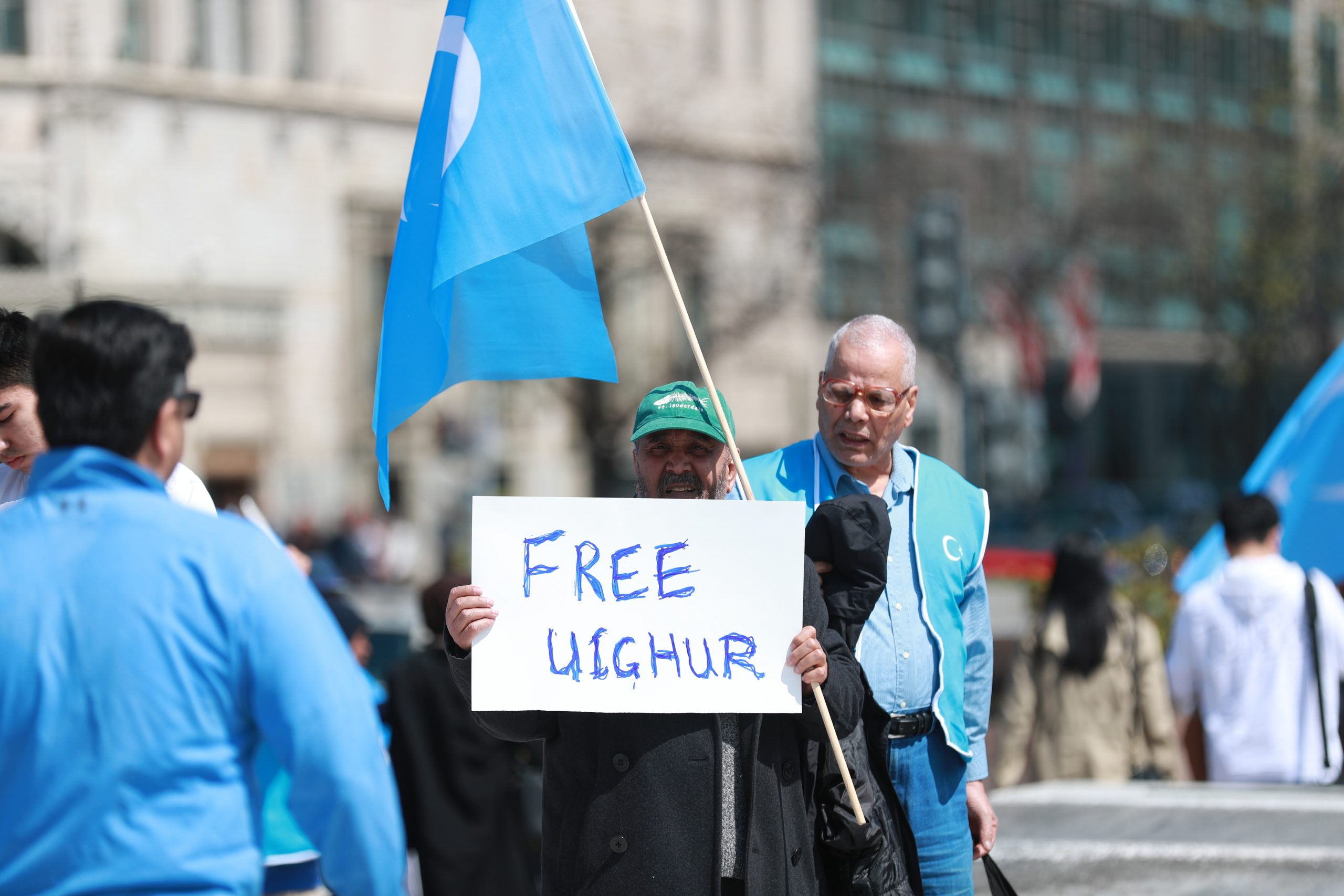“We’re going to replace the Tories in the red wall.” These are the bold words of Reform UK’s leader, Richard Tice, but could his optimistic prediction be a realistic threat to the Conservatives come the general election?
Reform UK has jumped to third in recent voting intention polls, after 15% of respondents showed their support for the fringe party in the most recent YouGov survey. Meanwhile the Tories recorded their lowest polling level since October 2022 after former Prime Minister Liz Truss was replaced by Rishi Sunak. The data shows they are still struggling to steady the ship after the turmoil that has rocked their party in recent months and as their polls have continued to slump, Labour remains steadfastly on top on 45%.
Although the Tories are still four points clear of Reform in the most recent YouGov poll, the surge in support Reform are enjoying could have dire consequences for Sunak’s government at the next general election which will take place no later than 25 January next year.
The red wall seats Tice referred to, erstwhile bastions of reliable Labour support before Boris Johnson’s seismic victory in 2019, are exactly the seats where Reform are likely to soak up alienated voters who voted for Johnson’s promises regarding Brexit and immigration.
Such a divide in right-leaning voters will almost certainly have Labour fancying their chances to claim many of these seats back, but it is in the Tory heartland where Reform could do the most damage to Sunak.

Reform UK: The party seeking to “make Britain great”
Founded as the Brexit party by Nigel Farage in 2018, the party has evolved to encapsulate a number of populist issues on the political right, with its policies including offshore detention of asylum seekers and departure from the European Convention on Human Rights.
Further policies have included reform of the House of Lords and opposition to Covid-19 lockdowns during the pandemic.
When discussing a party shaking up politics in the UK, it should come as no surprise to detect Farage’s influence in shaping the party as a formidable political force. For a man often considered to be on the political fringes and a self branded maverick, it is hard to think of an individual who has affected politics in the UK more in the last two decades than Farage.
He was perhaps Brexit’s most visible champion since becoming leader of UKIP in 2006, 10 years later his vision of the UK leaving Europe was a reality. Senior politicians who underestimate his political nous and ability to intuit the issues that move voters do so at their own peril.
The party has been led by businessman, and founder of Brexit campaign groups Leave.EU and Leave Means Leave, Richard Tice, since 2021. Under his leadership the party gained its first MP in March this year after former Conservative Deputy Chairman Lee Anderson crossed the floor to the opposition benches.
Explaining his decision, Anderson said: “Like millions of people in this country, I feel that we are slowly giving our country away.
“Parliament doesn’t seem to understand what many British people want, and quite frankly some of them need to get out more.”
The Tory wasteland
As the general election looms, Sunak has been urgently trying to shore up support among the party faithful, but it is a battle he is fighting on many fronts.
He has been forced to try to carve out his own identity distinct from the bombast of his predecessors Liz Truss and Boris Johnson, whose electoral triumph in 2019 was only paralleled by his biblical fall from grace following the scandals of Partygate and Chris Pincher. Neither Truss or Johnson have been supportive of Sunak, and are still figures who command loyalty from some factions of the party.
But the electorate do not seem convinced by Sunak’s efforts – nor do his own MPs. Anderson’s departure is only the latest in an onslaught of barbs and public spats that have come from Sunak’s own party, with Anderson being among around 60 MPs to publicly rebel against the PM in January over an amendment to his controversial bill to send Asylum seekers to Rwanda.
Loyalty to the PM seems to be in short supply from MPs who claimed a red wall seat for the Tories in 2019, with Don Valley MP Nick Fletcher refusing to condemn Anderson’s defection, saying Anderson was Ashfield’s “greatest champion and I hope they appreciate what he has done for his home town and his country at the next election”.
In 2019 Reform UK did not stand in seats won by the Tories in the previous election. That will not be the case this time around.
Anderson said: “Reform UK has offered me the chance to speak out in Parliament on behalf of millions of people up and down the country who feel that they are not being listened to.”
Sunak cuts an isolated figure as he attempts to stave off Tory in-fighting as well as trade blows with Labour in the run-up to the election.
The spectre at the feast.
The old aphorism is that a week is a long time in politics, and it may be many weeks yet before a general election takes place.
It would be naïve to suggest that Reform will eclipse the Conservatives at the next election based on these figures. However, the dangers of relying on polls to predict the outcomes of elections are well documented.
Foreign Secretary Lord David Cameron can attest to this, as his grave miscalculation in public support for Brexit precipitated his ignominious resignation as PM following the 2016 referendum. Lord Cameron’s miraculous return to the political forefront may speak to a desperation among the leadership to regain credibility and stability after the fractiousness of recent years.
While these polls will alarm Tory party higher-ups, they will derive reassurance from their party’s long history and robust framework of donors and campaigners to steer their party through this crisis of identity.
This is unlikely to be an existential threat to the party and it is important to put these figures in context. Lee Anderson is Reform’s only sitting MP. Reform is still controversial, advocating for a ban of “transgender ideology” in schools, with its policy outline making their position on the issue transparent: “There are two sexes and two genders.”
Last week, 10 candidates were expelled from Reform for homophobic, racist and sexist comments that they either posted or liked on social media.
Nevertheless, there is an undeniable appetite among the electorate for what Reform are selling, as borne out by their swell in the polls. Of Reform and his own reputation for not mincing his words, Anderson said: “My opinions are not controversial, they are opinions which are shared by millions of people up and down the country.”
With Labour ascendant in polls despite their own recent controversies concerning their stance on the ongoing Israel-Gaza conflict and the tax affairs of Deputy leader Angela Rayner, the overriding fear amongst Tories must be the mass-exodus of right-wing voters to Reform, dividing their voter base and all but ensuring a Labour victory at the next general election.
Like a hound running down wounded prey, Reform UK continues to ruthlessly capitalise on Tory psychodrama in surveys.
They will cast a long shadow over the next election and the question is how far the Conservatives will have to adjust to win over the electorate and steer themselves away from the political wasteland a heavy defeat could leave them in.



